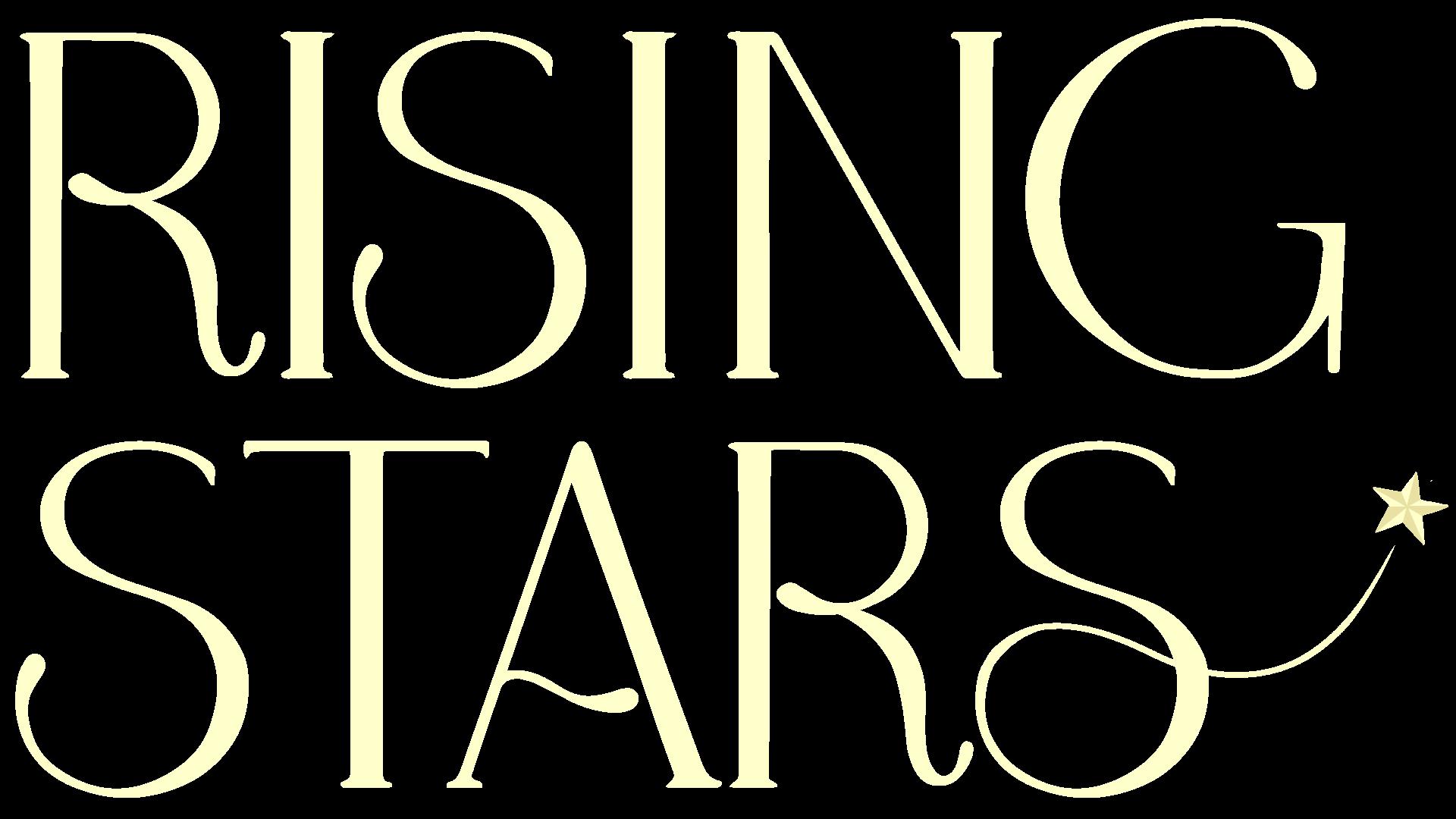
Featuring Winners oF the 2023-24 ConCerto-aria Competition

Scott Weiss, conductor Jordan Brooks, conductor Almond Ponge, piano
Andrew Moore, saxophone
March 19, 2024 | 7:30 p.m.
Koger Center for the Arts

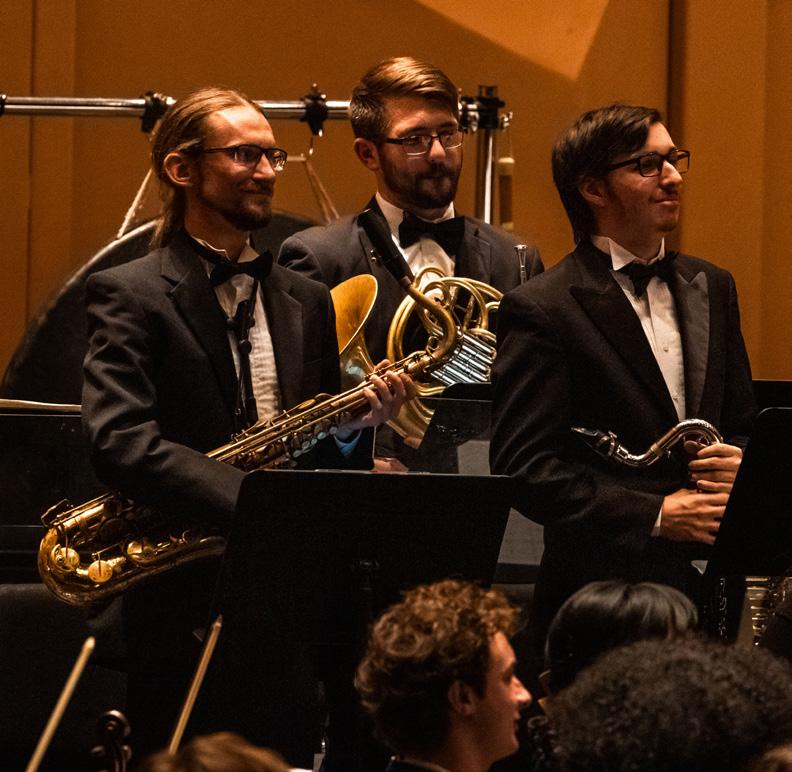

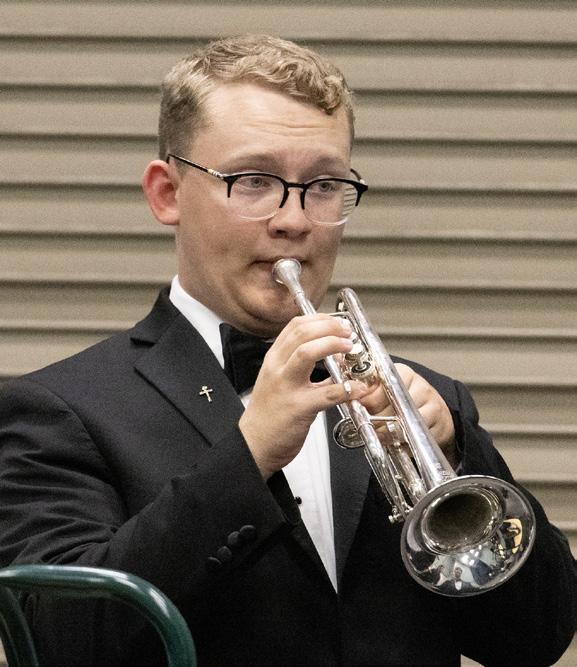

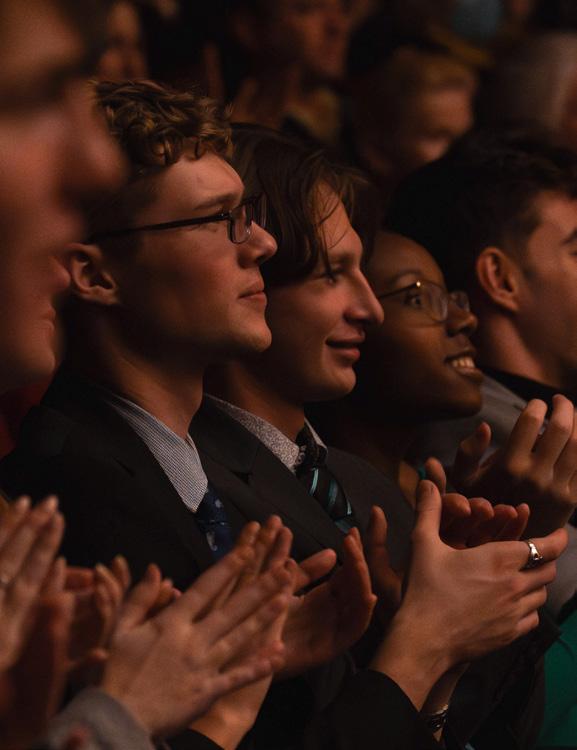


Featuring Winners oF the 2023-24 ConCerto-aria Competition

Scott Weiss, conductor Jordan Brooks, conductor Almond Ponge, piano
Andrew Moore, saxophone
March 19, 2024 | 7:30 p.m.
Koger Center for the Arts






Tuesday, March 19, 2024 at 7:30 p.m.
Koger Center for the Arts, Columbia
Scott Weiss, conductor Jordan Brooks, conductor
Frédéric Chopin (1810-1849)
Henri Tomasi (1901–1971)
Béla Bartók (1881-1945)
Almond Ponge, piano
Andrew Moore, saxophone
Piano Concerto No. 1 in E minor, Op. 11 (1830) Allegro maestoso
Almond Ponge, piano Jordan Brooks, conductor
Concerto for Alto Saxophone and Orchestra (1949)
Andante et allegro Final: Giration
Andrew Moore, saxophone
Scott Weiss, conductor
INTERMISSION
Concerto for Orchestra, Sz.116 (1943)
Introduzione. Andante non troppo
Presentando le coppie. Allegro scherzando Elegia. Andante non troppo Intermezzo Interrotto. Allegretto Finale. Pesante-Presto
Scott Weiss, conductor
A special thanks to our sectional coaches Professors Ari Streisfeld, Hassan Anderson and JD Shaw.
We would love to hear your feedback about the performance!
Scan the QR code to fill out a brief survey.

The USC School of Music’s Concerto-Aria Competition is an annual competition open to all USC students that occurs during the fall semester of every school year. Judges come from the local Columbia music community and beyond. At the end of the competition, three winners are selected: one undergraduate student, one graduate student and one overall winner (either undergraduate or graduate). Winners are given the opportunity to play up to twenty minutes worth of music in concert with the USC Symphony Orchestra, giving these talented USC students the rare experience of playing solo with an orchestra. Previous winners of the Concerto-Aria Competition have gone on to have very successful solo, chamber music and orchestral careers.
Information about the 2024-25 Concerto-Aria Competition will be released in Fall 2024. All USC student instrumentalists and vocalists are encouraged to audition.
Polish-born composer and virtuoso pianist Frédéric Chopin is best remembered for his solo piano works, much like his close contemporary Franz Liszt. No. 1 was actually the second piano concerto he wrote due to a flip in the way the works were published, both of which being written in the year before he turned twenty years old. In its premiere, the concerto was broken up in its performance with an intermezzo (a short piece that serves to connect two bodies of music) performed by singer Anna Wołkow in between the first movement and the subsequent two movements. This was custom during the Romantic era, as was clapping in between movements when the audience felt compelled to show their appreciation. The first movement alone received “a thunderous ovation,” making it a great stand-alone movement as it is in tonight's program. Rising Star Almond Ponge has previously performed the concerto with the Manila Symphony Orchestra and has even performed in a benefit concert for the Chopin Foundation.
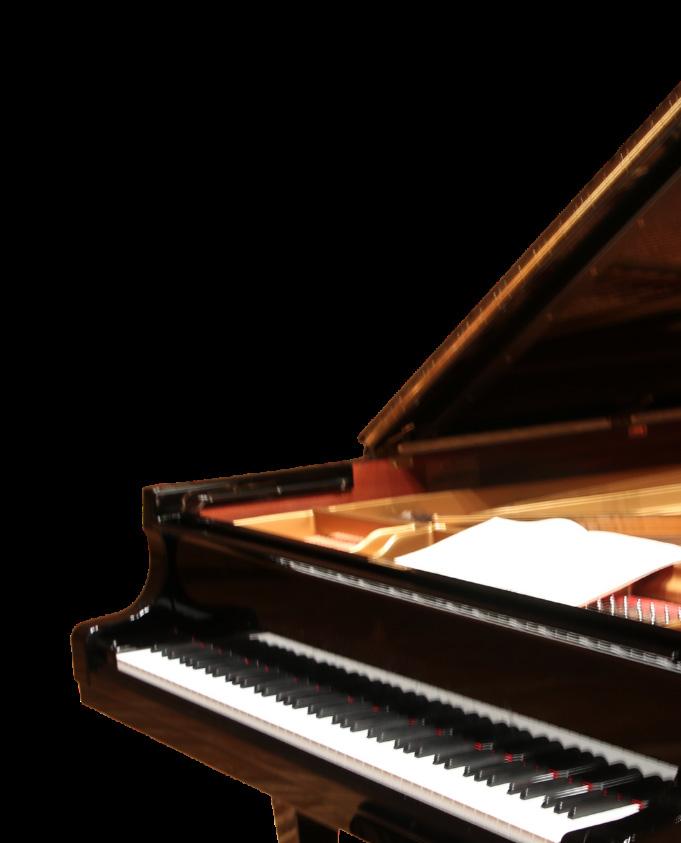
Although the saxophone is rarely included in the typical orchestra, it sure sounds great when paired with one, especially at the hands of French composer and conductor Henri Tomasi. Throughout his youth, Tomasi succeeded greatly in his piano playing and conducting, even having won the “Grand Prix de Rome” and a unanimous first prize in conducting from the Paris Conservatory (where he first started composing). His music is characterized by a unique lyricism that was formed by his exposure to operas by Puccini, Bizet, Mussorgsky and Debussy, which is especially apparent in the first movement of the Saxophone Concerto andante that opens the piece is later followed by a lopsided in 5/4 time signature (instead of the standard 4/4), causing a feeling of imbalance and uncertainty. The second movement, marked tournoyant (spinning) and vif (lively), features frequentlychanging meters and tonalities resembling aspects of other contemporary works from the mid-twentieth century. The piece ends with a dramatic largo harkening back to the opening of the first movement. Tomasi's wide oeuvre shows a versatility and deep understanding for orchestration that today lacks the level of recognition it deserves.
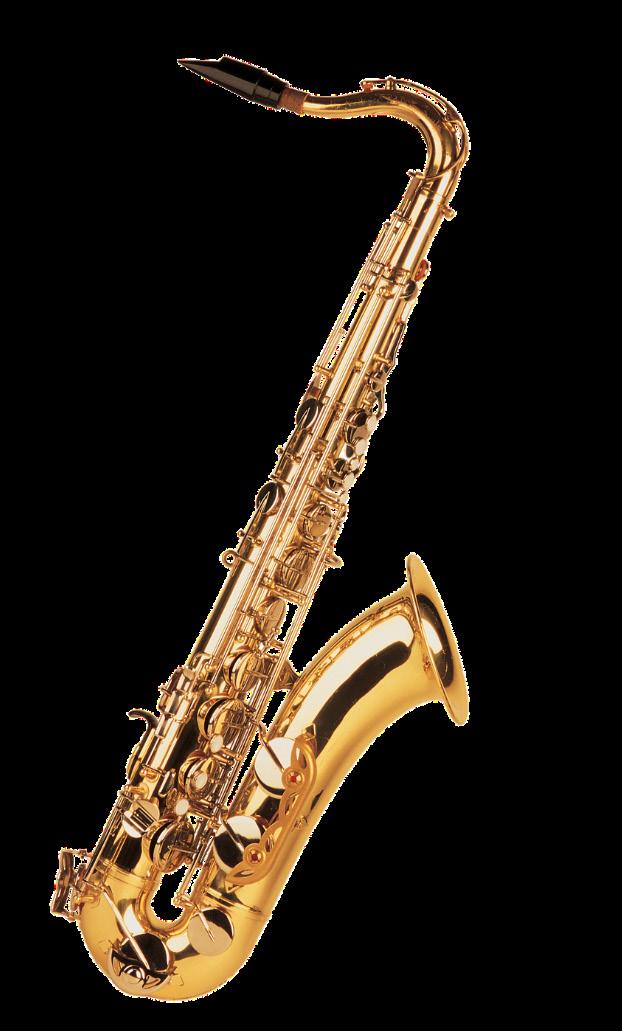
Bartók's music is known for its use of Hungarian folk melodies in combination with Western art music, prominently featuring modal harmonies and non-traditional scales. Filled with excerpts frequently requested at orchestral auditions, his Concerto for Orchestra is no piece of cake for any member of the orchestra. Bartók initially received this commission request during a New York hospital stay in which he was suffering from leukemia (which he was not informed of) when Serge Koussevitzky, conductor of the Boston Symphony, paid him a visit and asked him to write a piece in memory of his late wife. Bartók left the hospital promptly after Koussevitzky's visit and got to work, fueled by his renewed sense of strength and creativity.
Bartok provided the following program note for the premiere:
“The general mood of the work represents, apart from the jesting second movement, a gradual transition from the sternness of the first movement and the lugubrious death-song of the third, to the life-assertion of the last one... The title of this symphony-like orchestral work is explained by its tendency to treat the single orchestral instruments in a concertant or soloistic manner. The ‘virtuoso’ treatment appears, for instance, in the fugato sections of the development of the first movement (brass instruments), or in the perpetuum mobilelike passage of the principal theme in the last movement (strings), and especially in the second movement, in which pairs of instruments consecutively appear with brilliant passages.”

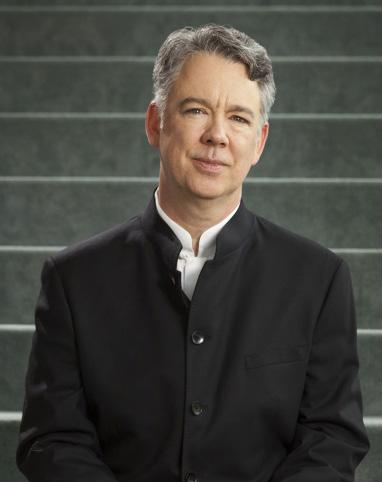
Scott Weiss is the Music Director and Conductor of the Aiken Symphony and the Director of Orchestras at the University of South Carolina School of Music. In demand internationally as a guest conductor, Weiss has conducted recent performances with the orchestras of Shenzhen, Tianjin, Hunan, Inner Mongolia, Shandong and Nanchang and at major international venues including the Taipei National Theatre and Concert Hall, the National Centre for the Performing Arts Concert Hall in Beijing and the Hangzhou Grand Theatre Concert Hall. Soloists he has recently shared the stage with include Elena Urioste, Angelo Xiang Yu, Zuill Bailey, Awadagin Pratt, John O’Conor, Marina Lomazov and Paul Jacobs.
Weiss has several critically-acclaimed recordings on the Naxos Records and Summit Records labels. His latest offering is the world premiere recording of Nico Muhly’s Reliable Sources, released on the Cantaloupe Music label in October 2021. The piece is one of dozens of new works that Weiss has commissioned from many of today’s leading composers, including Samuel Adler, Jennifer Higdon, Zhou Long, Cindy McTee and Joseph Schwanter. At the University of South Carolina, Weiss is the Sarah Bolick Smith Distinguished Professor of Music. In addition to conducting the USC Symphony Orchestra, Weiss leads the master’s and doctoral programs in orchestral conducting at USC, and his studio is a destination for talented young conductors from around the world. He is frequently invited to conduct performances and teach masterclasses at leading conservatoires and music schools, including the Sydney Conservatorium of Music, the Central Conservatory of Music (Beijing), the Shanghai Conservatory of Music and the University of Western Australia. Each summer, he teaches at the Los Angeles Conducting Workshop and Competition.
Born in Monterey, California in 1967, Weiss holds degrees from the Indiana University Jacobs School of Music and the University of Illinois, where he studied conducting with Donald Schleicher. Before joining the faculty at the University of South Carolina in 2010, he held conducting posts at the University of Kansas and the Indiana University Jacobs School of Music.
Weiss and his wife Teah are intrepid travelers and enjoy hiking, surfing and fine wines. They are the proud parents of John, a PhD student in chemistry at Northwestern University.
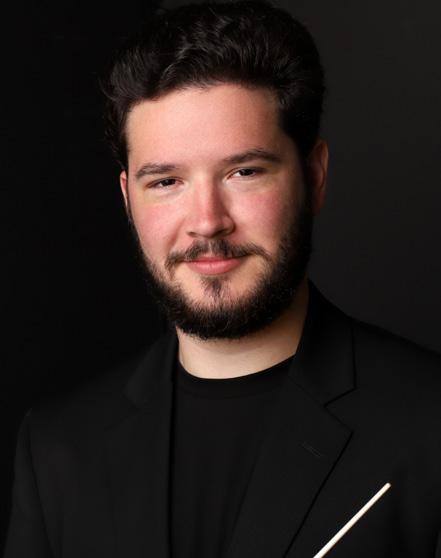
Jordan Brooks is an orchestral and operatic conductor currently based in Columbia, South Carolina. He is currently the Assistant Conductor of the University of South Carolina Symphony Orchestra and the Aiken Symphony, as well as Conductor of the university’s Campus Orchestra. At the University of South Carolina, Brooks studies with Dr. Scott Weiss and holds a Graduate Assistantship with the orchestra. Previously, he was the Assistant Conductor of the University of Pennsylvania Symphony Orchestra, cover conductor for the Delaware County Symphony and the Youth Orchestra of Bucks County Philharmonia and Conductor in Residence with the Center City Chamber Orchestra.
Also active as an operatic conductor, Brooks serves as Assistant Conductor to Opera at USC. He made his international conducting debut in Berlin, Germany as an Assistant Conductor at the Berlin Opera Academy and has also been a student at Miami Music Festival’s Opera Conducting Bootcamp. Previous summer studies include Mostly Modern Festival and Conductors Retreat at Medomak. Brooks counts among his conducting teachers and mentors Scott Weiss, Kensho Watanabe, Thomas Hong, Andreas Delfs and Kenneth Kiesler.
Brooks recently graduated from Temple University where he earned a Bachelor of Music degree in cello performance. He studied cello with John Koen of the Philadelphia Orchestra and has also worked with other members of the Philadelphia Orchestra and high-profile musicians in the area. At Temple, he was principal cello with the Temple University Symphony Orchestra and was involved in dozens of world premieres with local composers. He was also the Artistic Director and Conductor of the Temple University Repertory Orchestra.
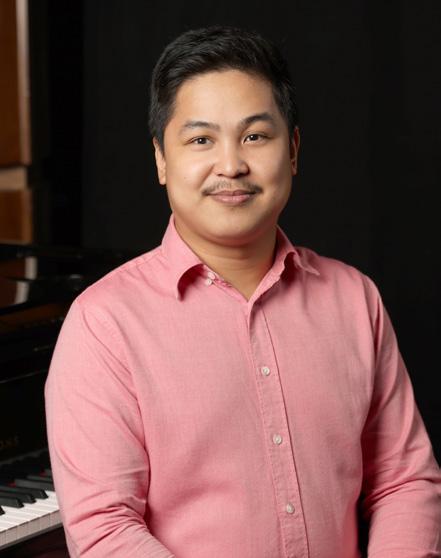
Pianist Almond Ponge is an artist who dares to explore the unknown. A native of the Philippines, his current passion lies in shedding light on underrepresented works and lesser-known composers and has been incorporating them in recitals since 2015. Recently performed composers include Carl Vine, Nikolai Medtner, Nikolai Kapustin, Miłosz Magin, Antonio Molina, William Albright, Alfredo Buenaventura, Lucrecia Kasilag, Ramon Santos and Antonino Buenaventura.
Ponge has won prizes in numerous competitions, including the grand prize at the Adria Art Fest 2021 and the Royal Sound Music Competition 2021. He also won first prize at the 2022 Tiziano Rossetti International Music Competition, the 2021 Lams Matera Award, the Danubia Talents International Competition and the Canadian International Music Competition, among others. He has performed in the U.S., France, Germany, the Netherlands, Luxembourg, Serbia and the Philippines. His orchestral debut was with the Manila Symphony Orchestra in 2013; he has participated in the Southeastern Piano Festival, the UST Sampung Mga Daliri, as well as Piano Teacher’s Guild of the Philippines (PTGP) events such as the Forte@40, and Paco Park Presents.
He has participated in masterclasses with pedagogues and performers such as Anton Nel, Carol Leone, John O’Connor, Walter Hautzig, Pascal Roge, Dorian Leljak and Sofya Gulyak, among others.
Ponge holds his Graduate Certificate in Piano performance from the University of South Carolina, an M.M. in Piano Performance from Winthrop University, and a B.M. from the University of Santo Tomas, Philippines. His primary teachers include Marina Lomazov, Phillip Bush, Charles Fugo and Matthew Manwarren, with additional tutelage from Eugene Barban, Perla Suaco and Patricia Lim. He is currently pursuing a D.M.A. in Piano Performance with a double minor in Piano Pedagogy and Music Theory at the University of South Carolina.
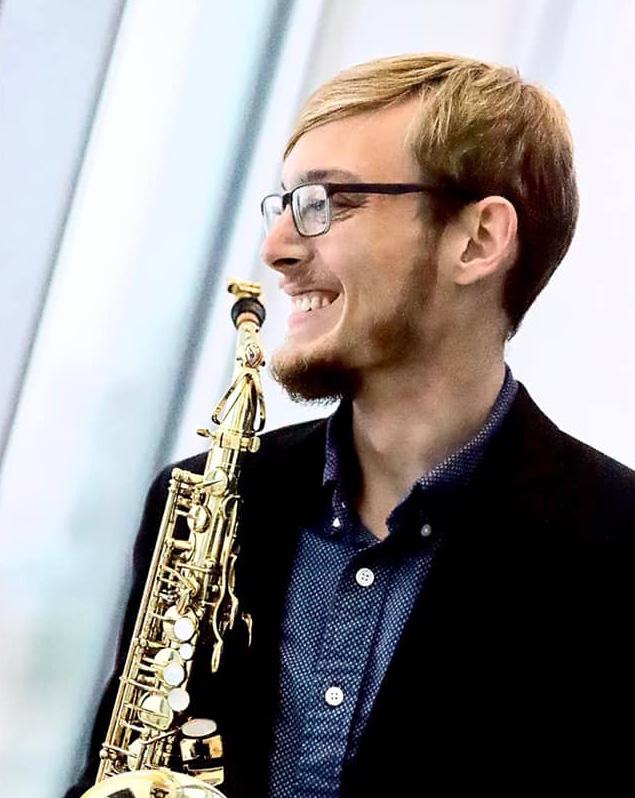
Andrew Moore was born in Port Charlotte, Florida. He holds degrees in music education and performance from Florida Gulf Coast University, where he studied with Mr. Mario Bernardo. Andrew later completed his Master of Music at Bowling Green State University, where he studied with Dr. John Sampen and served as both the University Bands Graduate Assistant and Associate Director of Athletic Bands during his studies. Moore is now pursuing his Doctor of Musical Arts degree at the University of South Carolina under the direction of Dr. Cliff Leaman. Moore has performed at several state, national and international symposia, including the United States Navy Band International Saxophone Symposium in Washington D.C. and the North American Saxophone Alliance biennial conferences in Tempe, Arizona, and Hattiesburg, Mississippi.
Violin I
Holly Workman concertmaster
Miguel Calleja associate concertmaster
Julia Jacobsen
Henry Baker
Sally Cathcart
Ziyi Deng
Caitlyn McDonald
Ekemini Umanah
William Edwards
Philip Howe
Naomi Wright
Giovanni Cusatis
Violin II
Aidan Billings principal
Margie Moore assistant principal
Katie Rojas
Steven Humphries
Sarah-Iyuna Spencer
McKenzie Sightler
Daphne Franklin
Nicole Bedoya
Savannah Elgin
Emily Beddingfield
Kayla Mathis
Gabriela McWethy
Lyra Xiong
Viola
Amanda Harrell principal
Douglas Temples assistant principal
Emily Tardiff-Rodriguez
Ian Hall
Derek George
Anthony Joyce
Gabriel Boyd
Elijah Skinner
Tiaryca Green
Esais Jones
Cello
Jordan Bartow co-principal
Zach Ward co-principal
Tristan Groscost
Decker Elam
Miranda Ramirez
Brooke Teacher
John Kuntz
Brendan Short
Bass
Joe Gaskins principal
Joshua Groscost assistant principal
Avea Diamond
Sadie Wood
Luke Hagg
Flute
Olivia Norton principal
Deepti Vadhiyar
assistant principal
Ashleigh Wallace
Alyssa Santiváñez
Oboe
Katie Eaton principal
Jaden Bowers
assistant principal
Sydney Fulcher
Kate Wages
Clarinet
Andrew Kevic principal
Eric Gardner assistant principal
Jackson Farmer
Reece Weslock
Bassoon
Aaron Nealy principal
Ed Senn
assistant principal
Christina French
Makena Nobles
Horn
Wenyu Hsu principal
Hunter Poe
assistant principal
Sadie Becht
Charlie Winston
Elise Halbig
Trumpet
Francisco Ballestas principal
Connor Bruce
George Bernard
Trombone
Nicholas Dewyer principal
Ian Schwalbe
Wills Kane
Bass Trombone
Trey Hogan principal
Tuba
Mathew Tuk principal
Percussion
Julia Ross principal
Ellakyn Brinkley
Jack Estrada
Yuesen Yang
Harp
John Wickey
Xueying Piao
Assistant Conductors
Jordan Brooks
Austin Davis
Librarian
Jordan Brooks
Orchestra Operations
Austin Davis
Marketing
Marlena Crovatt-Bagwell
Brad Martin
Julia Jacobsen
The USC Symphony Orchestra thanks the following donors for their generous support. You provide much-needed funding for scholarships, fellowships, world-renowned guest artists, music rentals and many other items that support our program. This list reflects gifts made between 1/1/2023 – 3/12/2024
Maestro Sponsor ($10,000+)
Peggy and Bill Maltarich
Principal Sponsor ($2,500+)
Schmoyer and Company Lourie Life and Health
Sustaining Sponsor ($2,000-$9,999)
Myra and Mike Nelson
Patricia and James Weiss
Sponsor ($1,000-$1,999)
Jerry Dell and Ben Gimarc
Sheila and Dwayne Josey
Jeffry Caswell and Jose Cotto Ortiz
Patron ($500-$999)
Christine and Tayloe Harding
Lisa and Rob Wilcox
Contributor ($250-$499)
Susan and Ronnie Belleggia
Laury Christie and David Vaughn
Leslie Frinks
Sharon and Ryan Gaskin
Pamela and Andy Gowan
Carol and John Kososki
Lee and Julian Minghi
Regina Moody
Linda and John Ropp
Audra and Johann Vaz
Teah and Scott Weiss
With Gratitude to Our Contributors continued
Barbara Bowers
Kris and Ronald Burns
Craig Butterfield
Ann and Robert Buys
Marlena Crovatt-Bagwell and Michael Bagwell
Gary Diamond
Daniela Friedman and Michael Dojc
Don Dupee
Charles Fugo
Charles Gatch
Don Greiner
Wendy and Nathan Groscost
Verotta Kennedy
Libby Law
Fredna Lee
Patty Lovit
Pauline Pagliocca
Cornelia Pasky
Martha Sutter and David Ross
Tracey and Michael Snelling
Vans Violins
Harriet Williams and Jerry Hagenmaier
Every effort has been made to ensure accuracy, but if your name is missing, please contact the School of Music Development Office at 803-576-5763.
Please support the USC Symphony Orchestra today. Your gift makes an immediate impact by providing critically needed funding and empowering us to meet emerging needs and opportunities, such as scholarships for deserving students, faculty recruitment and innovative new programming that enhances the overall Carolina experience. You can make a gift directly to the USC Symphony Orchestra Fund by using the QR code below.
For more information, contact Brad Martin, Assistant Director of Development at brad.martin@sc.edu
Thank you for helping us keep the music playing!


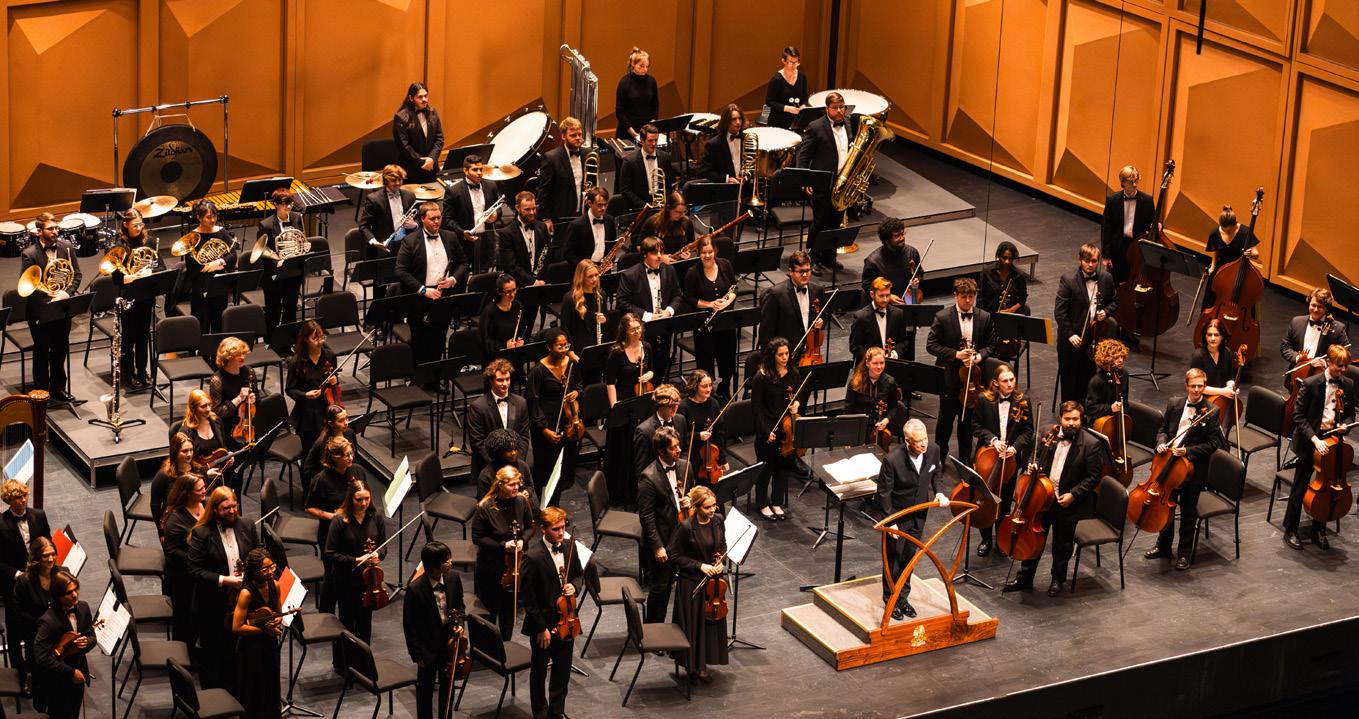
Interested in supporting the USC Symphony Orchestra through a corporate sponsorship?
Contact Brad Martin, Assistant Director of Development at brad.martin@sc.edu.




Thursday, September 28, 2023 MUSIC OF
Thursday, November 2, 2023 SOUL BASS
Tuesday, December 5, 2023 THE
Tuesday, February 6, 2024
Tuesday, March 19, 2024
Thursday, April 18, 2024
All performances will be held at 7:30 p.m. at the Koger Center for the Arts in Columbia, SC.